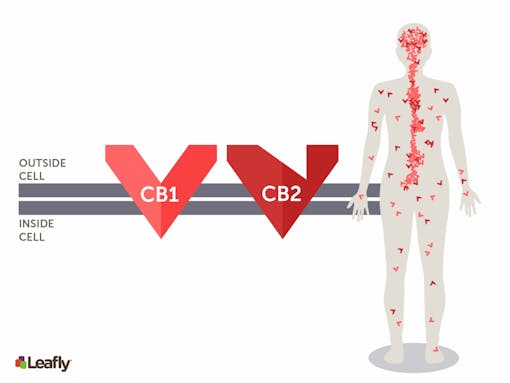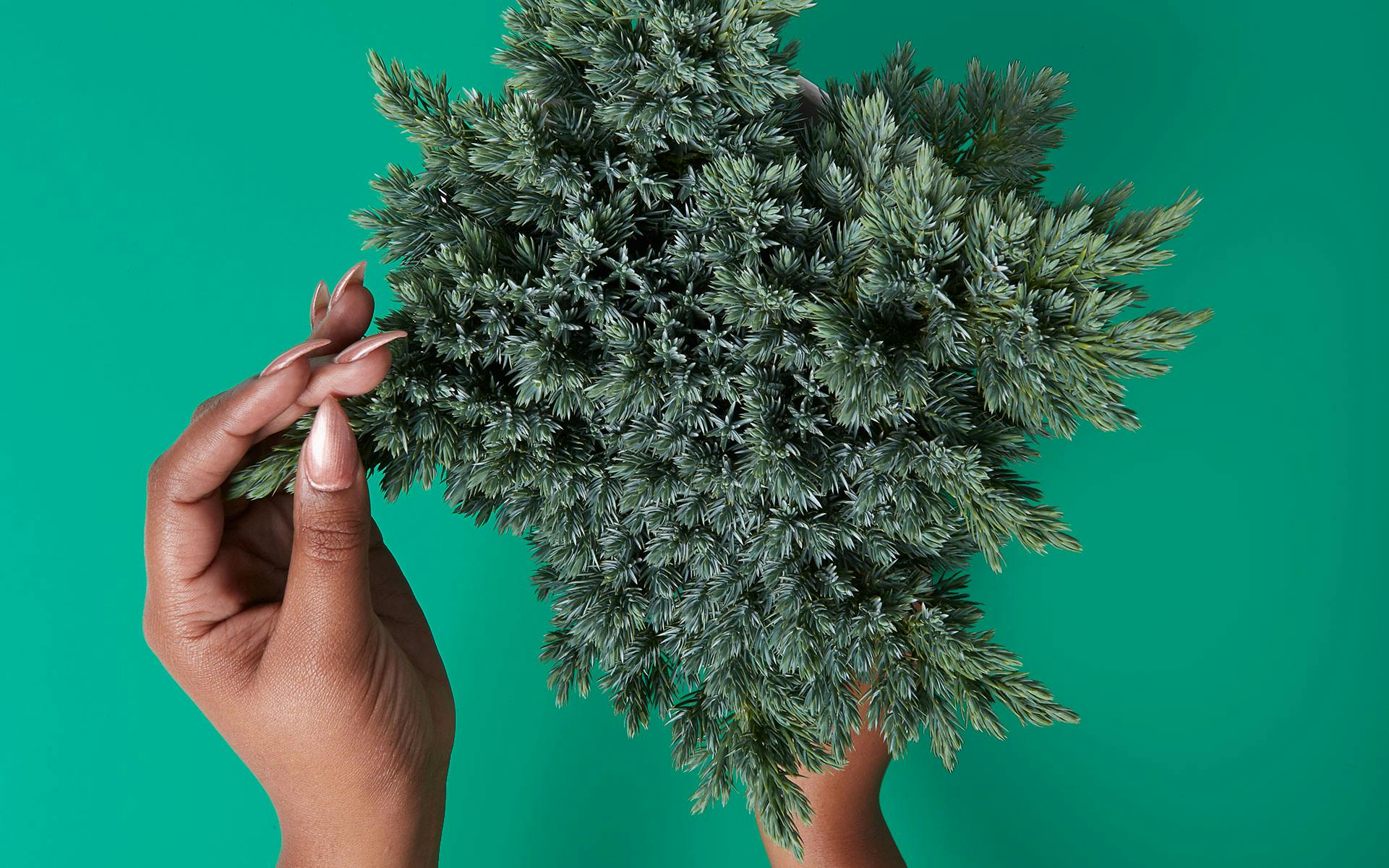Caryophyllene is a common and often abundant terpene found in cannabis. Its distinctive flavor contributes to the spiciness of black pepper and can be found in high amounts in cloves, hops, and rosemary. It falls under the FDA’s “generally recognized as safe” classification, so large doses can be safely consumed.
Over the last decade, caryophyllene has gained the attention of scientists when it was discovered to be one of the first non-cannabinoids to directly activate cannabinoid receptors. Caryophyllene-rich cannabis strains may therefore have specific medicinal effects due to this terpene’s effect on our endocannabinoid system.
Below, we will overview some of caryophyllene’s potential benefits and then describe which strains tend to have high levels of this terpene and how to find them.
The potential benefits of caryophyllene
CB2 receptors are found in immune tissues throughout the body and are increased in the brain in disease or following injury. Their activation reduces inflammation, which lessens pain and reduces the damaging consequences that chronic inflammation has on brain function and risk for developing brain diseases.

CB1 and CB2 are the major receptors of the body’s endocannabinoid system. CB1 receptors are more common in the nervous system. CB2 receptors, which are activated by caryophyllene, are more common in other places, like the immune system. (Elysse Feigenblatt/Leafly)
Research on caryophyllene is somewhat limited. On one hand, it’s tempting to generalize the therapeutic benefits of caryophyllene based on the effects of other compounds that activate CB2 receptors. After all, CB2 receptor activation by other compounds can play an important role in reducing pain, preventing seizures, and even decreasing plaque buildup in the arteries.
But not all activators of CB2 receptors have the same effect. Differences in the specific way that caryophyllene activates CB2 receptors can lead to differences in the strength of therapeutic effects.
Pain
The data suggest that, in many cases, caryophyllene can provide pain relief. In one study, scientists injected mice with caryophyllene and found that they experienced less pain than those treated with the control solution. Furthermore, caryophyllene enhanced the pain-reducing strength of low-dose morphine. This could be one reason why those using prescription opioids from pain are often able to decrease their dose of opioids when they begin using medical cannabis.
Inflammation and brain aging
There are numerous inflammatory diseases that affect the digestive tract. Colitis is one such disease where inflammation of the intestines causes pain, diarrhea, abdominal cramping, and even increases risk for cancer. In mice that were experimentally given colitis, treatment with caryophyllene helped by decreasing inflammation in the colon.
Shop highly rated dispensaries near you
Showing you dispensaries nearThe activation of CB2 receptors by caryophyllene certainly plays a role in its anti-pain effects, but it also contributes to its ability to protect the body and brain from disease. For instance, brain inflammation plays a substantial role in the onset and progression of Alzheimer’s disease. In a mouse model of Alzheimer’s disease, caryophyllene activated CB2 and PPAR-γ receptors and reduced hallmark features of Alzheimer’s such as the accumulation of brain plaques. These actions also protect against the cognitive decline that characterizes this model of disease.
Caryophyllene-dominant cannabis strains
Strains with high levels of caryophyllene span the cannabis spectrum. It tends to be an abundant terpene in indicas like Death Star, sativas such as Candyland, and hybrid strains like GSC. In fact, many strains in the “Cookies” family have high levels of this terpene.
Here are common strains that tend to express caryophyllene-dominant terpene profiles:
- GSC
- Bubba Kush
- Sour Diesel
- Chemdog
- Candyland
- Death Star
- Original Glue
- Cookies and Cream
- Gelato
- The White
- Master Kush
Finding strains high in caryophyllene
When selecting a strain that tends to be high in caryophyllene, keep in mind that individual products may or may not be representative of that strain’s true composition, and most product labels do not currently provide terpene profiles to consumers. Do your research, and ask a knowledgeable retailer to recommend brands with a reputation for quality.
Explore dispensaries nearby
Even though many states do not require cannabis products to have their terpene profiles measured and labelled, some conscientious and forward-thinking brands take the extra step of having terpene profiles measured and provide these to consumers on packaging. One of the best things you can do as a consumer is ask your dispensaries to carry products with labelled terpene profiles, and use your purchasing power to reward brands that make this crucial information accessible.
Being able to shop for cannabis products with verified terpene profiles will be very important for consumers, since terpenes like caryophyllene may offer specific therapeutic benefits for some people. But we still have a lot to learn about this cannabis terpene.
The future of caryophyllene research
One of the biggest questions regarding the role that cannabis terpenes play in a strain’s therapeutic benefits is whether they’re expressed in sufficient concentrations to have an effect on the body. The available scientific studies have used isolated caryophyllene, often in high doses. Are these doses substantially higher than what can be consumed with a caryophyllene-rich cannabis strain? At this point, it’s unclear.
The future of caryophyllene research (and all cannabis terpenes) should involve studying the terpene at doses consistent with typical human consumption as well as in the presence of other cannabinoids. This could be done by systematically altering levels of a terpene while keeping levels of other cannabis compounds constant. Nonetheless, because caryophyllene can be added safely added to food, many products could experiment with boosting caryophyllene levels to therapeutically-relevant doses.






